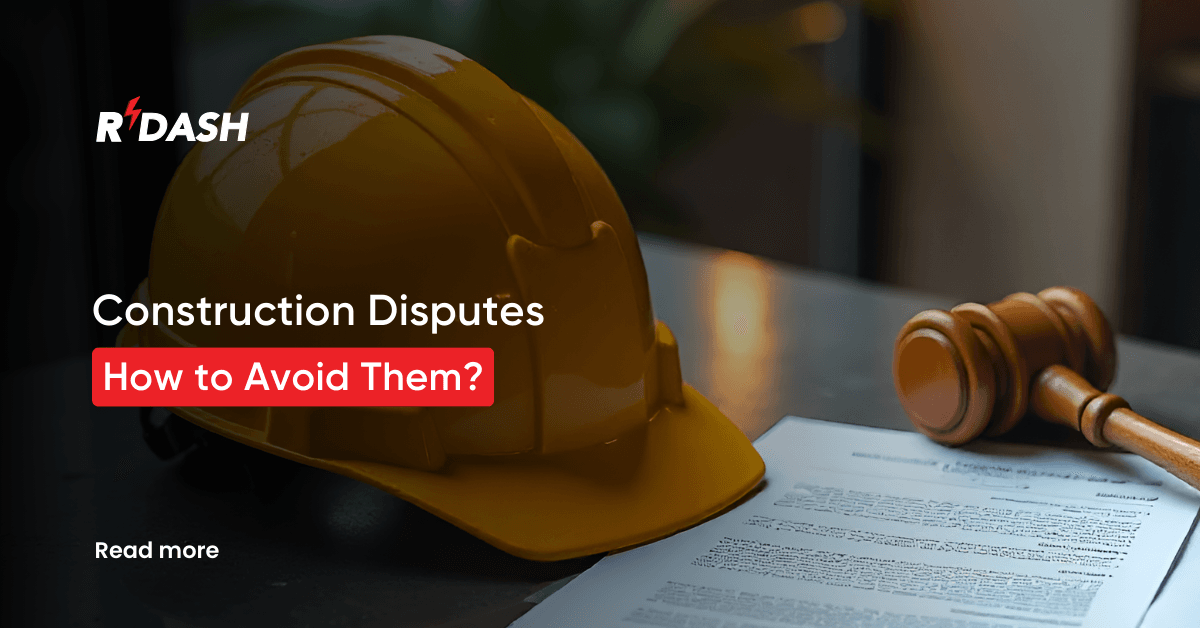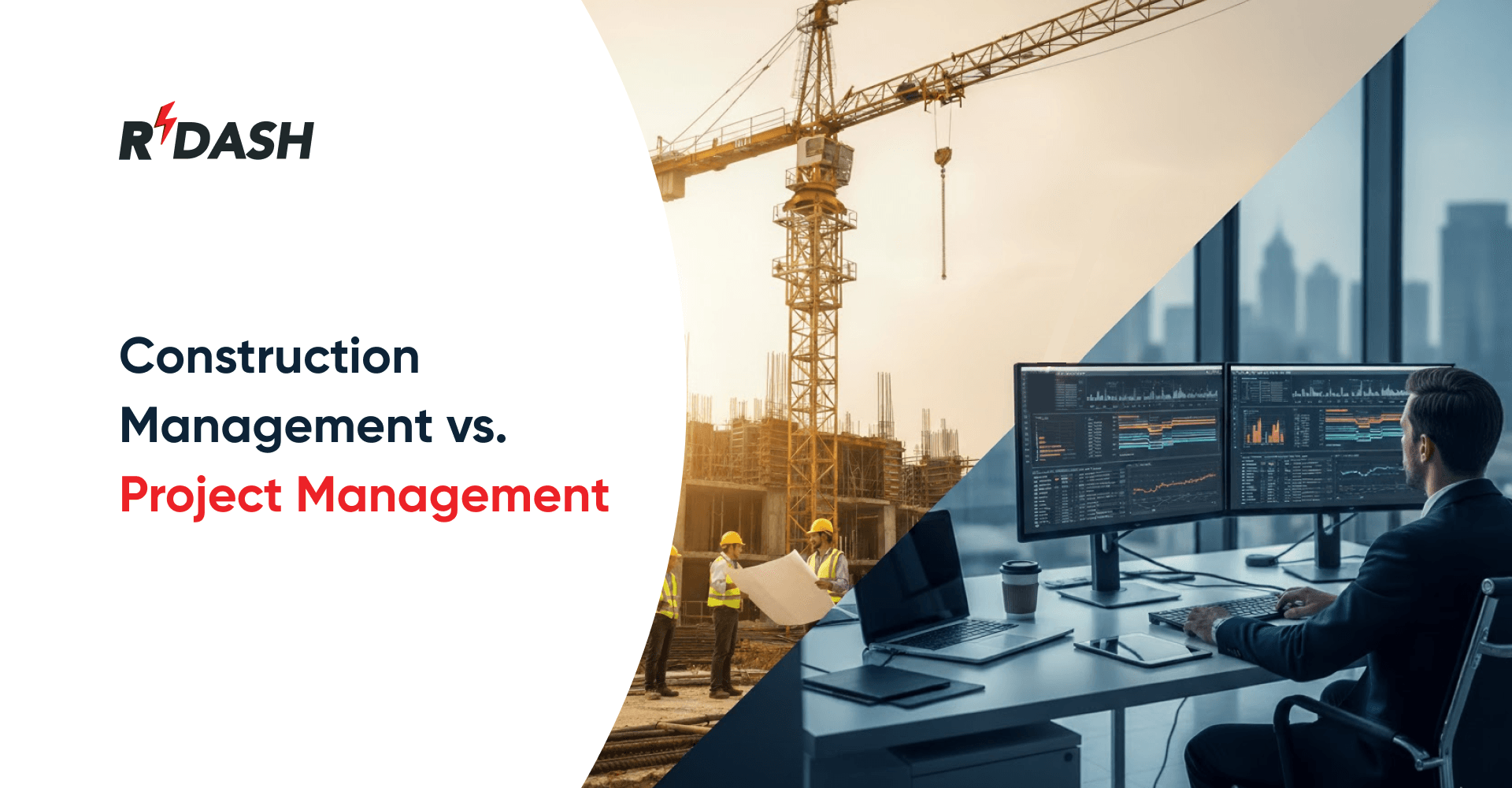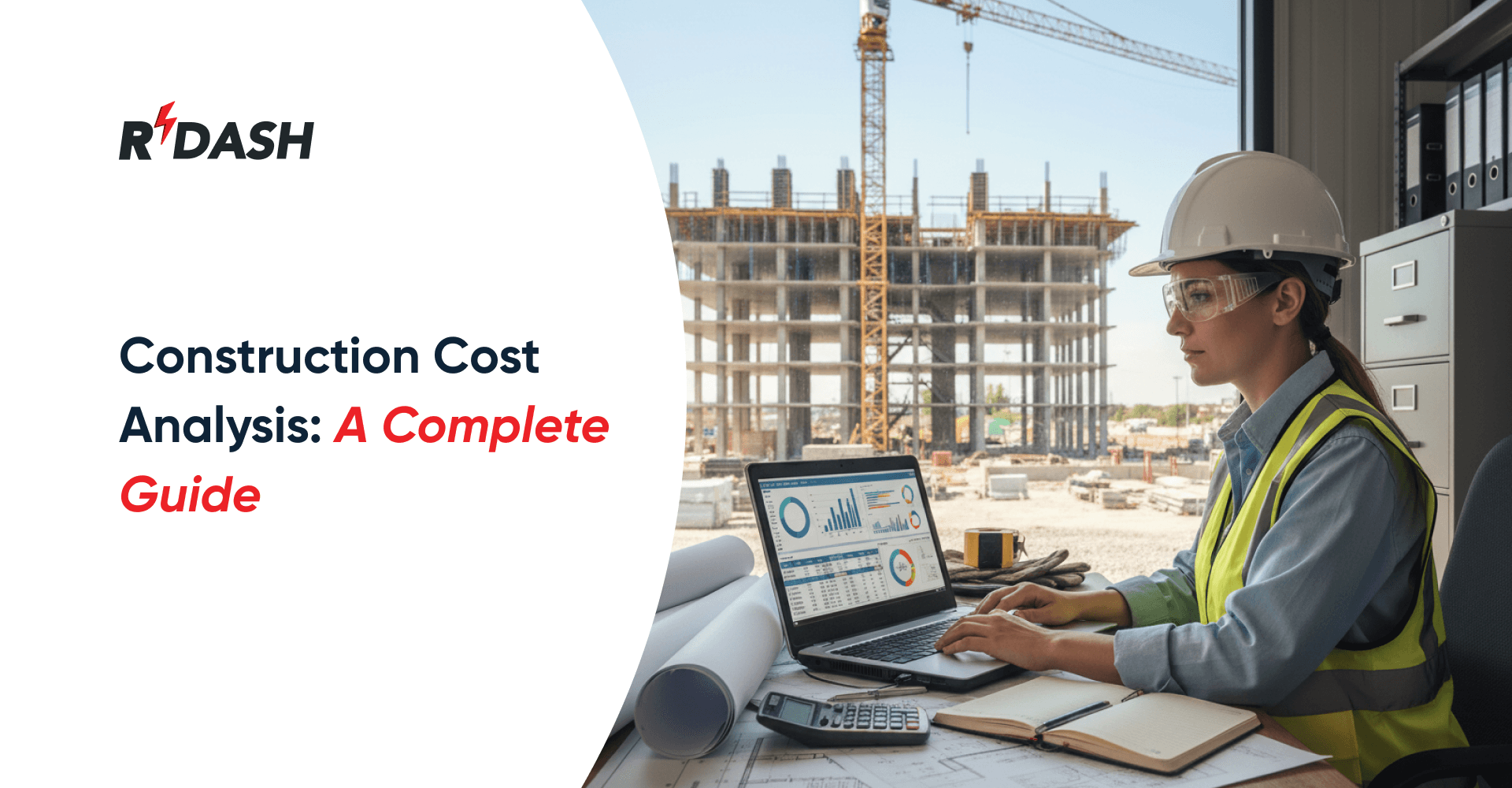What is a Construction Dispute?
A construction dispute refers to any disagreement or conflict that arises among the parties involved in a construction project. These disputes can occur between any combination of owners, contractors, subcontractors, suppliers, or other stakeholders. They often result from differences in interpretation of contract terms, dissatisfaction with work, unforeseen circumstances, or failure to meet obligations, and can severely impact the project’s timeline, budget, and overall success.
Types of Construction Disputes

- Site Conditions: One of the most common sources of construction disputes involves unforeseen site conditions. For example, contractors might encounter underground structures or contaminated soil that weren’t identified during the initial surveys. These unexpected discoveries can lead to disputes over who is responsible for additional costs and project delays.
- Changes to Original Scope of Work: Disputes frequently arise when there are alterations to the initially agreed-upon scope of work. Whether due to changes requested by the client or necessary adjustments due to unforeseen challenges, any alteration can affect the project’s cost and duration. Disagreements might emerge over additional charges or the feasibility of the new requirements under the original terms.
- Trade Disputes: These disputes occur between different tradespeople on a project. Coordination issues, such as delays in one trade that affect the workflow of others, or disputes over the quality and timing of the work completed, can escalate into major conflicts, potentially halting project progress.
- Confusion Over Scope of Work: Misunderstandings or ambiguities in the project’s scope can lead to disputes. This might involve unclear plans, poorly defined work parameters, or disagreements about the quality standards expected. Clear, comprehensive documentation and regular communication are vital to minimize these issues.
Common Causes of Construction Disputes
Construction disputes can derail a project’s timeline and budget. Understanding the common causes is crucial for prevention. Here are some frequent triggers:
- Poorly Defined Scope of Work: Ambiguity in contract documents regarding the scope of work can lead to misunderstandings about what is expected from each party.
- Contract Misinterpretations: Different interpretations of contract terms between parties can cause significant disputes regarding obligations and rights.
- Delays: Delays are common in construction and can stem from various sources like bad weather, delays in receiving materials, or labor shortages. These delays can affect the entire project timeline and lead to disputes over extension requests and financial losses.
- Change Orders: Changes to the original plan or scope, often necessary as a project progresses, can lead to disputes if not handled properly, especially if they impact the project’s cost or duration.
- Defective Work: Claims of substandard work can cause disputes over compliance with contractual specifications and the cost of repairs or replacements.
Methods of Resolving Construction Disputes
When disputes arise, resolving them effectively is key to continuing the project smoothly. Here are some methods commonly used:
- Negotiation: Direct negotiation between parties is often the first step in dispute resolution, where parties try to reach a consensus without external help.
- Mediation: A neutral third-party mediator helps the parties discuss their issues and find a mutually agreeable solution. This method is non-binding.
- Arbitration: In arbitration, a neutral arbitrator (or a panel) hears the arguments from all parties and makes a decision that is usually binding.
- Litigation: When other methods fail, parties may take the dispute to court. Litigation is generally the most time-consuming and costly method of dispute resolution.
- Dispute Review Boards: Consisting of experts, these boards provide a quick resolution process during the project, offering ongoing support to prevent construction disputes from escalating.
Impact of Construction Disputes
The impact of construction disputes can be extensive, affecting more than just the immediate project:

- Financial Costs: Legal fees, delays, and rework increase project costs significantly.
- Time Delays: Disputes often lead to project delays while the parties resolve the issues, affecting delivery schedules.
- Relationship Damage: Prolonged disputes can damage relationships between project parties, affecting future collaboration.
- Reputation Damage: Frequent disputes can harm a company’s reputation, affecting its ability to win future contracts.
By understanding these aspects, parties involved in construction projects can better prepare and implement strategies to minimize disputes, ensuring smoother project execution and stronger professional relationships.
The role of contracts in preventing disputes
Contracts are fundamental tools in construction projects, serving as blueprints for how processes should be handled and preventing disputes before they arise. A well-drafted contract clearly defines the scope, timelines, payment schedules, and responsibilities of all parties involved, thus minimizing misunderstandings. Here are some ways contracts can help prevent construction disputes:
- Clear Scope of Work: A detailed description of the work to be performed helps all parties understand their tasks and reduces conflicts over expectations.
- Detailed Terms and Conditions: Including comprehensive terms regarding project management, change orders, and dispute resolution procedures can provide clear guidance on handling unexpected issues.
- Risk Allocation: Clearly outlining the risks and specifying who is responsible for managing these risks can prevent disputes related to unforeseen project challenges.
- Payment Terms: Specifying when and how payments will be made can prevent financial disputes.
By ensuring that contracts are thorough and tailored to the specific needs of the project, parties can significantly reduce the likelihood of construction disputes.
How to effectively communicate during disputes
Effective communication is crucial in resolving construction disputes when they arise. Here are strategies to ensure communication is constructive and leads to resolution:
- Open Communication Lines: Maintain open lines of communication with all parties involved. This encourages transparency and allows for quick identification and resolution of issues.
- Active Listening: Listen to the concerns and positions of the other parties involved without prejudice. Understanding each party’s viewpoint can facilitate more effective solutions.
- Use Clear and Simple Language: Avoid technical jargon that might lead to misunderstandings. Effective communication ensures everyone involved understands each other clearly.
- Document Communications: Keep a record of all communications related to the dispute. This documentation can be invaluable in understanding the progression of the dispute and in subsequent negotiations.
- Professional Assistance: Consider involving mediators or legal advisors who can provide an unbiased perspective and facilitate effective communication.
Preventive measures to avoid construction disputes
Implementing preventive measures can significantly reduce the frequency and severity of disputes in construction projects. Here are key strategies to help avoid conflicts:
- Comprehensive Planning: Spend adequate time during the planning phase to detail every aspect of the project. This includes clear scopes, deadlines, and expectations from all parties involved.
- Regular Updates and Meetings: Schedule regular meetings to update all stakeholders on the progress, changes, and any issues that arise. These meetings keep everyone informed and engaged, allowing for immediate feedback and adjustment.
- Use of Technology: Employ project management software to keep track of project timelines, budget, and communications. Tools like RDash can provide real-time updates and dashboards, which help in maintaining transparency and minimizing misunderstandings.
- Training and Education: Educate your team about the importance of contracts and effective communication. Ensure that all parties understand the terms of the contract and the consequences of non-compliance.
- Early Dispute Resolution Techniques: Implement mechanisms for early identification and resolution of issues. This could include a dispute resolution clause in the contract that specifies mediation or arbitration before litigation.
By adopting these preventive measures, construction projects can run more smoothly, reducing the chances of disputes and ensuring that any disagreements that do arise are handled efficiently.
FAQs
What is the most common cause of disputes in construction?
The most common cause of disputes is typically related to delays or misunderstandings about the scope of work.
How can contract management help prevent disputes?
Effective contract management ensures that all parties are clear about their roles, responsibilities, and the terms of engagement, which reduces the chances of misunderstandings and conflicts.
Are there specific tools that can help in reducing construction disputes?
Yes, construction management software like RDash can help in tracking project progress, managing documents, and maintaining clear communication between all parties.
How important is communication in preventing construction disputes?
Communication is crucial; it ensures that all stakeholders are aligned, and any potential issues are addressed promptly before they escalate into disputes.
Can regular training reduce the likelihood of disputes?
Yes, training staff on contract specifics, project management tools, and effective communication can significantly reduce the likelihood of disputes by enhancing understanding and compliance among team members.
These measures and tips can help create a more harmonious working environment on construction sites and prevent the common pitfalls that lead to disputes.






